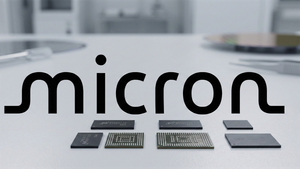
If you’re looking for a sector that’s on sale, look to healthcare. The Health Care Select Sector SPDR Fund (NYSEARCA: XLV) is down 2.50% in the past month, lagging the S&P 500.
The top components within the sector are Eli Lilly & Co. (NYSE: LLY), Johnson & Johnson (NYSE: JNJ), UnitedHealth Group Inc. (NYSE: UNH), Merck & Co. Inc. (NYSE: MRK) and AbbVie Inc. (NYSE: ABBV).
None of those stocks are in crash-and-burn mode, but all are trading below their highs.
Healthcare stocks tend to outperform others during economic downturns or periods of sluggish activity for several reasons. That’s important, as many analysts are forecasting slower economic activity in the fourth quarter.
Demand for healthcare services remains relatively stable regardless of economic conditions, as people continue to require medical care.
Reliable Revenue Streams
Typically, people continue refilling prescriptions and receiving necessary treatments even when the economy slumps.
In addition, healthcare companies often produce essential items such as medications and medical devices, ensuring consistent revenue streams.
That means healthcare companies have some defensive qualities, making them attractive to investors seeking stability.
For example, in 2022, healthcare declined only 2%, holding up far better than most sectors, trailing only red-hot energy, dividend hero utilities and defensive safe haven consumer staples.
In addition to performing better during economic pullbacks, healthcare stocks also tend to do well when inflation eases, which analysts expect to happen in the coming months.
Low inflation typically translates to reduced price pressures on healthcare companies, meaning they can better manage their own expenses. This helps the companies maintain profitability and continue their dividend payments or even increase shareholder payouts.
Lagging Growth Sectors in 2023
So far in 2023, healthcare is lagging growth stock sectors, as technology stocks, consumer discretionary stocks and communications services stocks have notched rip-roaring returns.
You can use the healthcare ETF as a proxy for the sector when evaluating healthcare stocks’ potential. The Health Care Select Sector SPDR Fund chart shows you how the sector has essentially been treading water since early 2022, which accounts for those relatively small percentage declines.
The top-performing healthcare stock in the past three months is Eli Lilly, followed by Molina Healthcare Inc. (NYSE: MOH), Amgen Inc. (NASDAQ: AMGN), Catalent Inc. (NYSE: CLT) and AbbVie.
The healthcare sector ETF has a dividend yield of 1.6%, meaning price declines are partially offset by those shareholder payouts.
As a whole, healthcare, which includes sub-industries such as biotech and biomedicine, is on the cutting edge of technological advancement.
Smaller Healthcare Stocks: Risk and Return Equation
Many of those companies at the forefront of tech, such as CRISPR Therapeutics (NASDAQ: CRSP), are mid-caps or small-caps. That means they carry more risk, especially as many of those smaller company stocks get whipsawed due to clinical trial results or regulatory actions.
However, it’s exactly that level of risk that can create market-beating returns.
Even among some of the large-cap healthcare stocks, new products can catch on quickly and send shares into rally mode. For example, Novo Nordisk A/S (NYSE: NVO) and Eli Lilly advanced in recent months on strong sales of weight-loss drugs.
The industry is also reliant on constant growth. As existing treatments lose patent exclusivity, meaning they can be manufactured generically, pharmaceutical companies have to launch new products with robust revenue potential.
Fertile Ground for M&A Activity
The industry depends on merger and acquisition activity for that reason. Larger pharmaceutical companies frequently purchase small biotechs with a promising treatment, which benefits investors in the company being acquired.
For example, in March, Pfizer Inc. (NYSE: PFE) said it would acquire Seagen Inc. (NASDAQ: SGEN), a biotech that makes cancer treatments, for $43 billion. Assuming it gets the nod from regulators, it would be the largest biopharma deal in three years. It’s expected to close later this year or early next year.
Pfizer’s offer values Seagen shares at $229 apiece, a premium to where Seagen is currently trading.
While no sector is immune to sharp downturns, healthcare has some factors that make it more resilient than others when economic conditions change.
While it has elements of growth, as you can see by the rapid development of technologies in the biotech sector, it also has elements of an income-generating sector, as many long-established companies are dividend payers.





